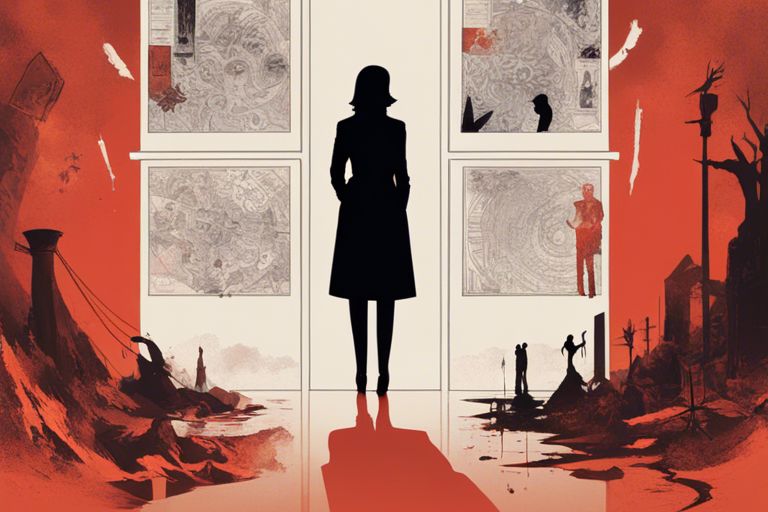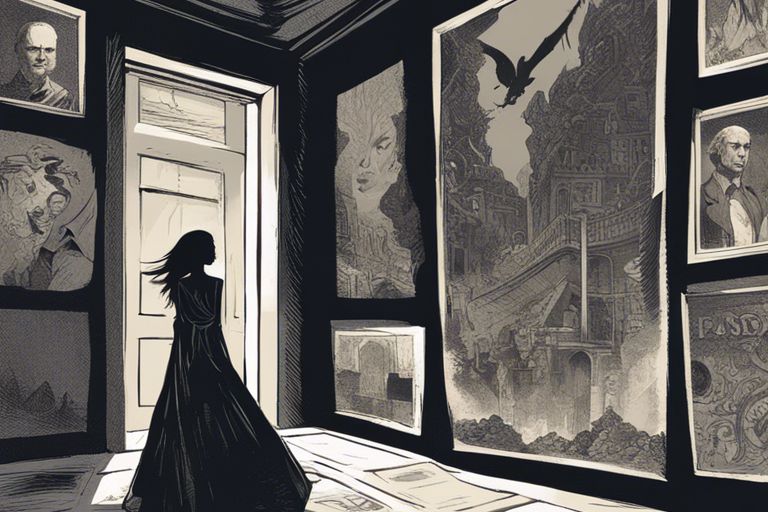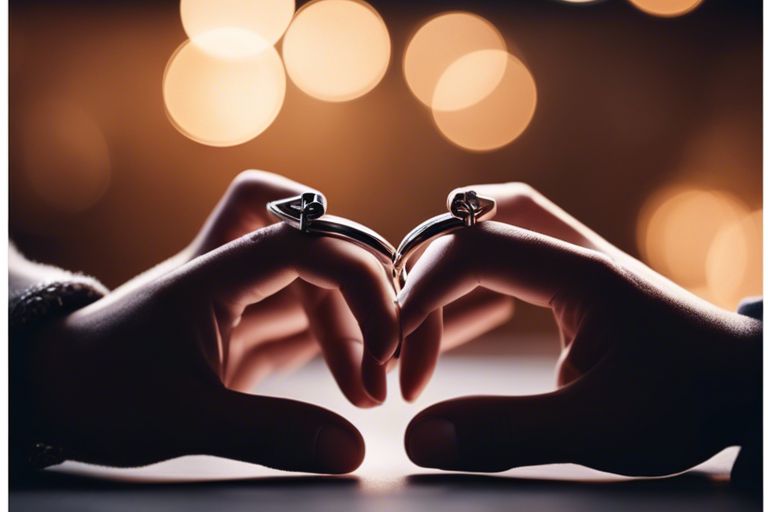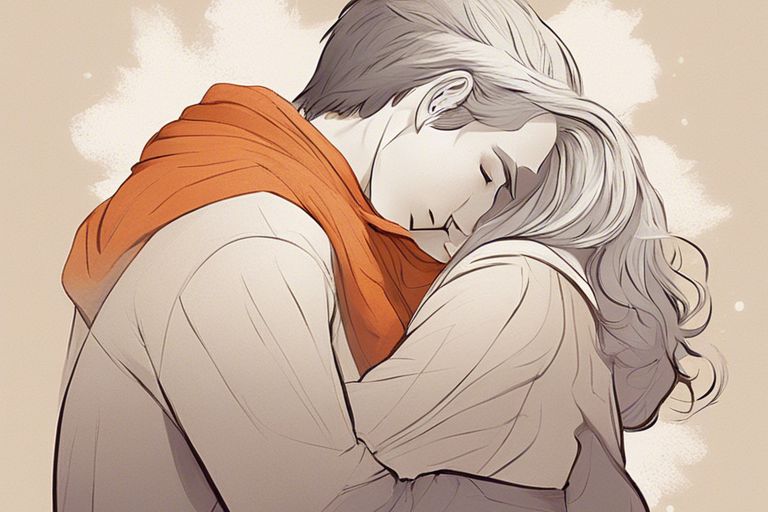Why Am I Attracted to Troubled Guys?

You ever find yourself drawn to troubled guys and wonder why? You’re not alone. This common phenomenon can be complicated, frustrating, and emotionally draining.
In this blog post, we’ll investigate the psychological reasons behind this attraction and explore ways to break free from unhealthy patterns.
Key Takeaways:
- Understanding past trauma: Your attraction to troubled guys could stem from a desire to help or fix someone, often rooted in your own past experiences.
- Need for validation: Seeking validation and approval from troubled guys might be a way to address your own insecurities or low self-esteem.
- Excitement and drama: The unpredictability and intensity of relationships with troubled guys can create a sense of excitement and adrenaline rush, but it’s important to distinguish between healthy and toxic dynamics.
- Therapy and self-reflection: Engaging in therapy or self-reflection can help you understand the underlying reasons for your attraction to troubled guys and work towards healthier relationship patterns.
- Setting boundaries: Learning to set boundaries and prioritize your own well-being is crucial in breaking free from patterns of being attracted to troubled individuals.

The Psychology Behind the Attraction
The Excitement Factor
There’s something undeniably thrilling about being drawn to troubled guys. The unpredictability, the sense of danger, and the feeling of living on the edge can be strangely alluring. The adrenaline rush that comes with trying to navigate the complexities of their personalities can make life feel more exciting and vibrant.
The Fixer Mentality
Psychology plays a major role in why some individuals are attracted to troubled guys. The “fixer mentality” leads people to believe that they can help heal and save someone who is broken. The desire to be a savior and make a positive impact on someone’s life can be a driving force behind this attraction.
Excitement aside, it’s important to recognize the potentially harmful patterns that can arise from constantly seeking out troubled partners. While helping others is noble, it’s crucial to prioritize your own well-being and not fall into a cycle of trying to fix someone who may not be ready to change. Setting healthy boundaries and seeking therapy can help address underlying reasons for this attraction.
Emotional Connections and Past Experiences
Some people find themselves drawn to troubled guys due to the emotional connections they form and their past experiences. These connections can feel intense and fulfilling, creating a sense of purpose and understanding in the relationship.
The Role of Childhood Experiences
Connections to troubled individuals can sometimes stem from unresolved issues in childhood. Past experiences of instability or neglect may lead some individuals to seek out partners who exhibit similar traits, as they may subconsciously be trying to make sense of or heal from their own past.
Seeking the Familiar in Relationships
The attraction to troubled guys may also come from a desire to seek the familiar in relationships. If someone grew up in a tumultuous environment, they may feel more comfortable and secure in a relationship that mirrors those dynamics, even if they are unhealthy. This sense of familiarity, no matter how negative, can feel comforting to some individuals.
The role of seeking the familiar in relationships can be complex. While it may provide a sense of comfort and understanding, it can also perpetuate negative patterns and prevent growth. It’s important to reflect on these patterns and consider seeking out healthier relationships that promote personal well-being and growth.
The Impact on Relationship Dynamics
The Challenges Troubled Relationships Bring
Many people find themselves drawn to troubled individuals because they see them as a project to fix or a challenge to overcome. However, being in a relationship with someone who is dealing with their own issues can bring about a host of challenges. Communication breakdowns, trust issues, and emotional instability are just a few of the common hurdles that troubled relationships may face.
The Growth Opportunities and When to Walk Away
An important aspect of being in a relationship with a troubled individual is recognizing the potential for personal growth. These relationships can teach you valuable lessons about empathy, patience, and resilience. However, there comes a point where you must evaluate the impact the relationship is having on your own well-being. Recognizing when to walk away is crucial for your mental and emotional health.
Troubled relationships can offer opportunities for personal growth and self-reflection, but it’s vital to set boundaries and prioritize your own mental health. Walking away from a toxic relationship does not mean failure; it means taking care of yourself.
Changing the Pattern
Recognizing Unhealthy Attraction Triggers
On your journey to changing your pattern of being attracted to troubled guys, it’s necessary to first recognize the triggers that draw you to these individuals. These triggers can vary from past experiences, childhood traumas, or even a desire to fix and rescue others.
Steps Toward Healthier Relationships
The key to breaking the cycle of attracting troubled guys is to understand that you deserve a healthy and fulfilling relationship. The first step toward healthier relationships is to acknowledge and address any underlying issues or insecurities that may be fueling this attraction. Seeking therapy or counseling can be a beneficial way to navigate these complex emotions and behaviors.
Steps such as setting boundaries, learning to prioritize self-care, and surrounding yourself with supportive friends and family can also play a crucial role in breaking the pattern of unhealthy attractions.
Conclusion
With this in mind, it is clear that our attraction to troubled guys may stem from a desire to fix them or a belief that we can save them. However, it is important to remember that relationships should be based on mutual respect, trust, and support. It’s crucial to recognize our own worth and value, and not settle for toxic or unhealthy relationships. By understanding our motivations and making conscious choices, we can cultivate healthier and more fulfilling relationships in the future. Do not forget, you deserve someone who uplifts you, not someone who brings you down.
FAQ
Q: Why am I attracted to troubled guys?
A: There are various reasons why someone might be attracted to troubled guys. It could be due to a desire to help or fix them, a belief that they can change, or a subconscious attempt to recreate familiar dynamics from early relationships.
Q: Is it common to be attracted to troubled guys?
A: Yes, it is quite common for people to be attracted to troubled guys. The allure of mystery, excitement, or a perceived sense of intensity can make troubled individuals seem more intriguing or desirable.
Q: Are there potential risks in dating troubled guys?
A: Yes, there can be risks in dating troubled guys. These individuals may struggle with emotional issues, addictions, or destructive behaviors that can impact the relationship and your well-being. It’s important to set boundaries and prioritize your own mental health.
Q: How can I break the pattern of attracting troubled guys?
A: Breaking this pattern may involve self-reflection to understand your underlying motivations, building self-esteem to seek healthier relationships, and learning to recognize red flags early on. Therapy or counseling can also be beneficial in exploring these patterns.
Q: What are some signs of a healthy relationship?
A: In a healthy relationship, there is mutual respect, trust, effective communication, support for each other’s growth, and a sense of emotional safety. Both partners feel valued, understood, and able to be themselves without fear of judgment or harm.






